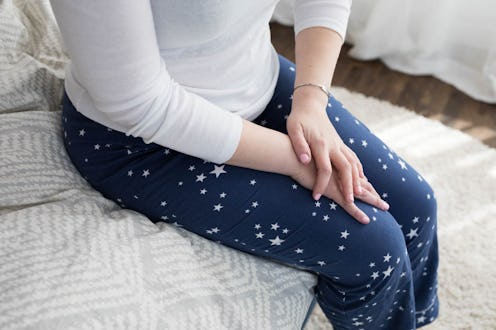
There's a lot of hysteria over the sexual behaviors of teenagers — and, namely, whether educating teenagers about safe sex will actually lead to them having more of it. In fact, similar fears sometimes exist about giving young people more access to safe sex — whether through condoms, birth control, or even vaccines.
But new research has shown that access to the HPV vaccine — introduced because HPV is linked not only to genital warts but to certain cancers — does not increased sexual activity among young women. If anything, the trend is moving in the opposite direction.
Publicly funded school-based HPV vaccinations were introduced for girls in British Columbia in 2008 and, while some thought that it was a laudable project that could prevent the spread of HPV, there were concerns that access to the vaccine would make young women more sexually active. Researchers from the University of British Columbia decided to study the link between HPV vaccinations and sexual activity levels, especially among younger teens. Although HPV vaccinations are available for boys and men as well, this study focused on the behavior among girls because the vaccines were publicly funded for them.
"Because this was a vaccine for an infection that is acquired sexually, some parents felt it would provide permission for earlier sexual activity," lead author Dr. Gina Ogilvie, of the School of Population and Public Health, the University of British Columbia, and assistant director of the Women's Health Research Institute at BC Women's Hospital, Vancouver, BC, tells Bustle. "I suspect it is similar to folks who worry that sexual health information leads to earlier sexual activity. This does not happen, but it some parents remain concerned."
When the researchers looked at findings from the BC Adolescent Health Survey from 2003 to 2013, they found that those fears were misplaced. Looking at data from over 300,000 young women, they found that the number of participants having sex had decreased over time, from 21.3 percent in 2003 to 20.6 percent in 2008 — and down to 18.3 percent in 2013. They also found the sexual activity rates had dropped among girls under 14 — and that condom use was up over that period. So fewer young women were having sex and, those that were, were being safer about it.
And though these results were heartening, the researchers weren't surprised. "[W]e have been tracking sexual behaviors of young people in North America for more than 20 years, and have seen steadily improving sexual health among adolescents in western Canada since the mid-1990s, and introducing the HPV vaccine does not appear to have influenced those downward trends," Dr. Ogilvie says. In fact, what they've seen is that we might not be giving teens enough credit.
"Teens today make healthier decisions about sex than their older peers — or even their parents! These findings are consistent with studies in Scandinavia, and smaller clinic based studies in the U.S., that confirm that adolescent young women do not make poorer sexual health choices after the HPV vaccine. However, parents expressed this as a concern, so we felt it was important to examine the concern in an objective fashion, which we have done."
Hopefully, research like this will soothe parental fears and, more importantly, encourage the accessibility of the HPV vaccine and other safe sex measures. The idea that under-informing teens about sex or not providing them with access to safe sex products will somehow keep them from having sex is not only unfounded, it's also incredibly problematic. So it's time to empower teens and young people with every tool at our disposal. Because giving young people access to education and safe sex mechanisms is way too important to be waylaid by unwarranted fears.